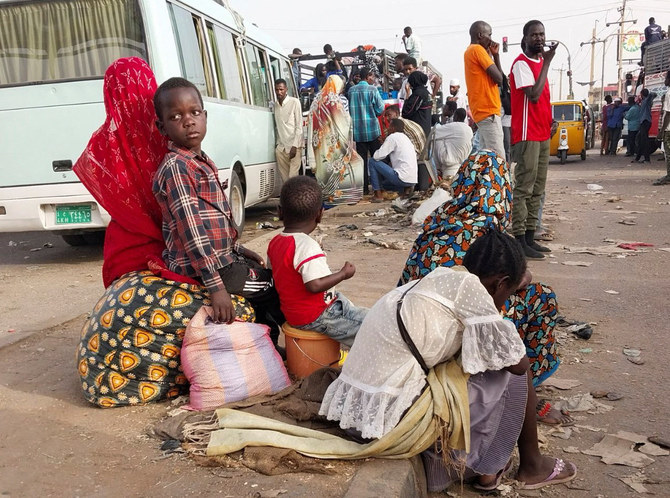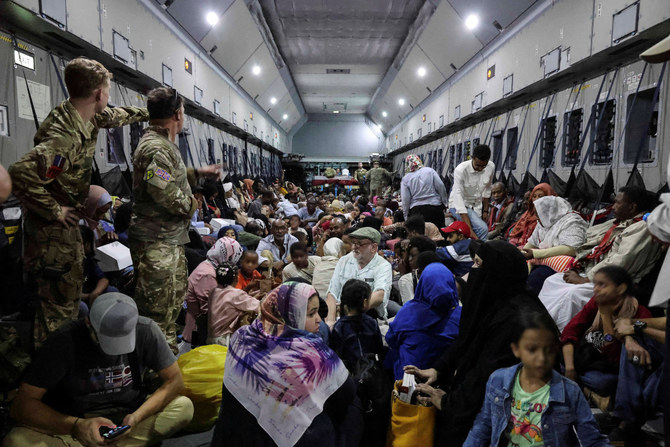KHARTOUM: Sudan’s rival military forces accused each other of fresh violations of a cease-fire on Sunday as their deadly conflict rumbled on for a third week despite warnings of a slide toward civil war.
Hundreds of people have been killed and thousands wounded since a long-simmering power struggle between the Sudanese army and the paramilitary Rapid Support Forces (RSF) erupted into conflict on April 15.
Both sides said a formal cease-fire agreement which was due to expire at midnight would be extended for a further 72 hours, in a move the RSF said was “in response to international, regional and local calls.”
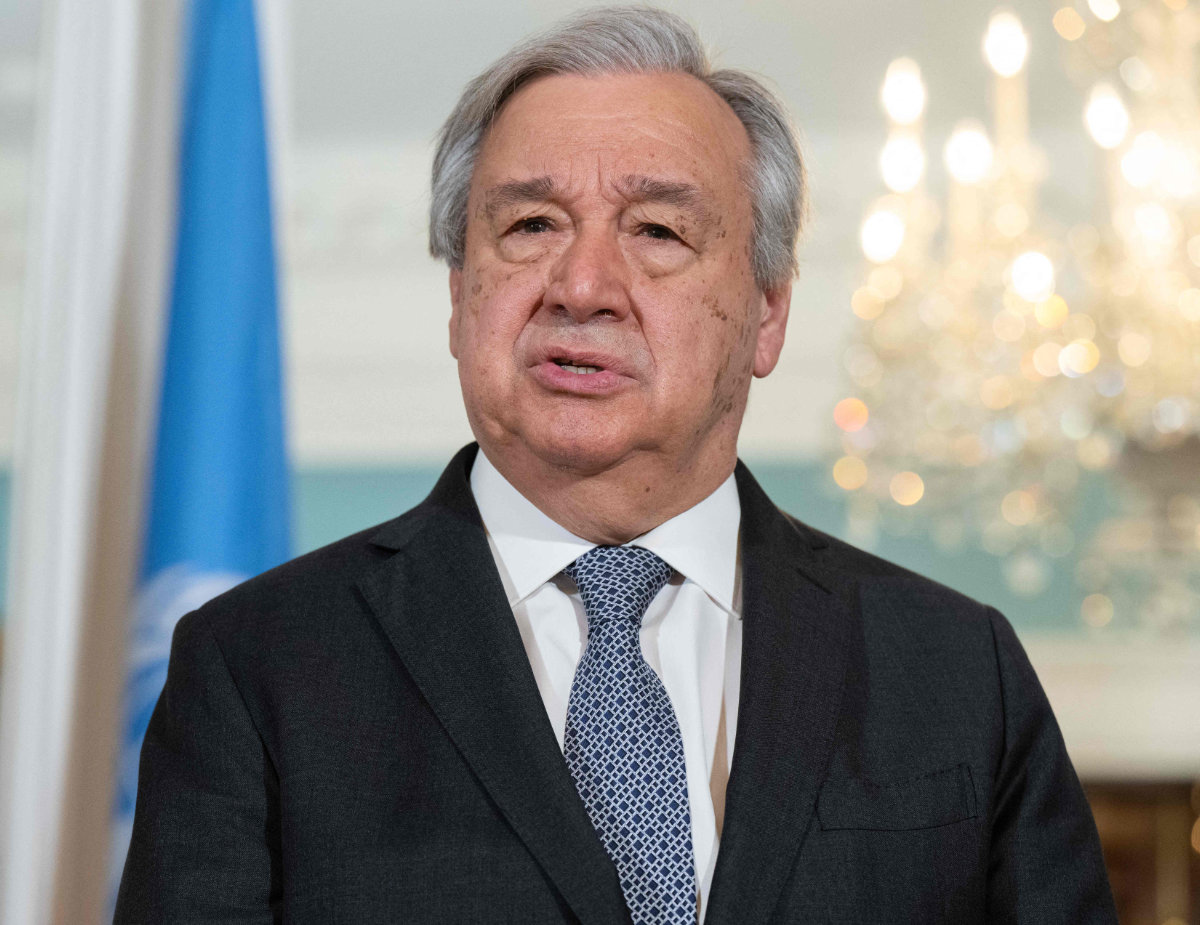
UN Secretary-General Antonio Guterres warned on Saturday that Sudan was breaking apart as fighting continued for a third week. (AFP)
The army said it hoped what it called the “rebels” would abide by the deal but it believed they had intended to keep up attacks. The parties have kept fighting through a series of cease-fires secured by mediators including the United States.
The situation in Khartoum, where the army has been battling RSF forces entrenched in residential areas, was relatively calm on Sunday morning, a Reuters journalist said, after heavy clashes were heard on Saturday evening near the city center.
The army said on Sunday it had destroyed RSF convoys moving toward Khartoum from the west. The RSF said the army had used artillery and warplanes to attack its positions in a number of areas in Khartoum province.
Reuters could not independently verify the reports.
In an apparent bid to boost its forces, the army said on Saturday that the Central Reserve Police had begun to deploy in southern Khartoum and would be deployed gradually in other areas of the capital.
Sudan’s police said that the force had been deployed to protect markets and property that had been subjected to looting. The RSF on Saturday warned it against becoming involved in fighting.
The force is a large and heavily armed division of Sudan’s police force that has fighting experience from conflicts in the western region of Darfur and in the Nuba Mountains in southern Sudan.
In March 2022, the United States imposed sanctions on the reserve police force, accusing it of using excessive force against protesters who were demonstrating against a 2021 military coup.
‘NO DIRECT NEGOTIATIONS’
The fighting in Khartoum has so far seen RSF forces fan out across the city as the army tries to target them largely by using air strikes from drones and fighter jets.
The conflict has sent tens of thousands of people fleeing across Sudan’s borders and prompted warnings the country could disintegrate, destabilising a volatile region and prompting foreign governments to scramble to evacuate their nationals.
The United States has sent a navy ship to take its citizens, two US officials said, as Britain announced it had arranged an extra evacuation flight from Port Sudan on the eastern Red Sea coast on Monday.
But, underlining the extent of the instability, Canada said it was ending its evacuation flights because of “dangerous conditions.”
The prospects for negotiations have appeared bleak.
“There are no direct negotiations, there are preparations for talks,” UN special representative in Sudan, Volker Perthes, told journalists in Port Sudan, adding that regional and international countries were working with the two sides.
Perthes, who told Reuters on Saturday the sides were more open to negotiations than before, said he hoped a direct meeting between representatives of the sides would be held as soon as possible aimed at “achieving an organized cease-fire with a monitoring mechanism.”
Army leader General Abdel Fattah Al-Burhan has said he would never sit down with RSF chief General Mohamed Hamdan Dagalo, also known as Hemedti, who in turn said he would talk only after the army ceased hostilities.
Saudi Foreign Minister Prince Faisal bin Farhan, whose government has played a part in mediating the cease-fires, met Burhan envoy Daffalla Al-Hajj Ali in Riyadh and called for calm, the Saudi foreign ministry said.
Adding to the diplomatic pressure, United Arab Emirates’ Vice President Sheikh Mansour bin Zayed had phoned Burhan, state news agency WAM reported.
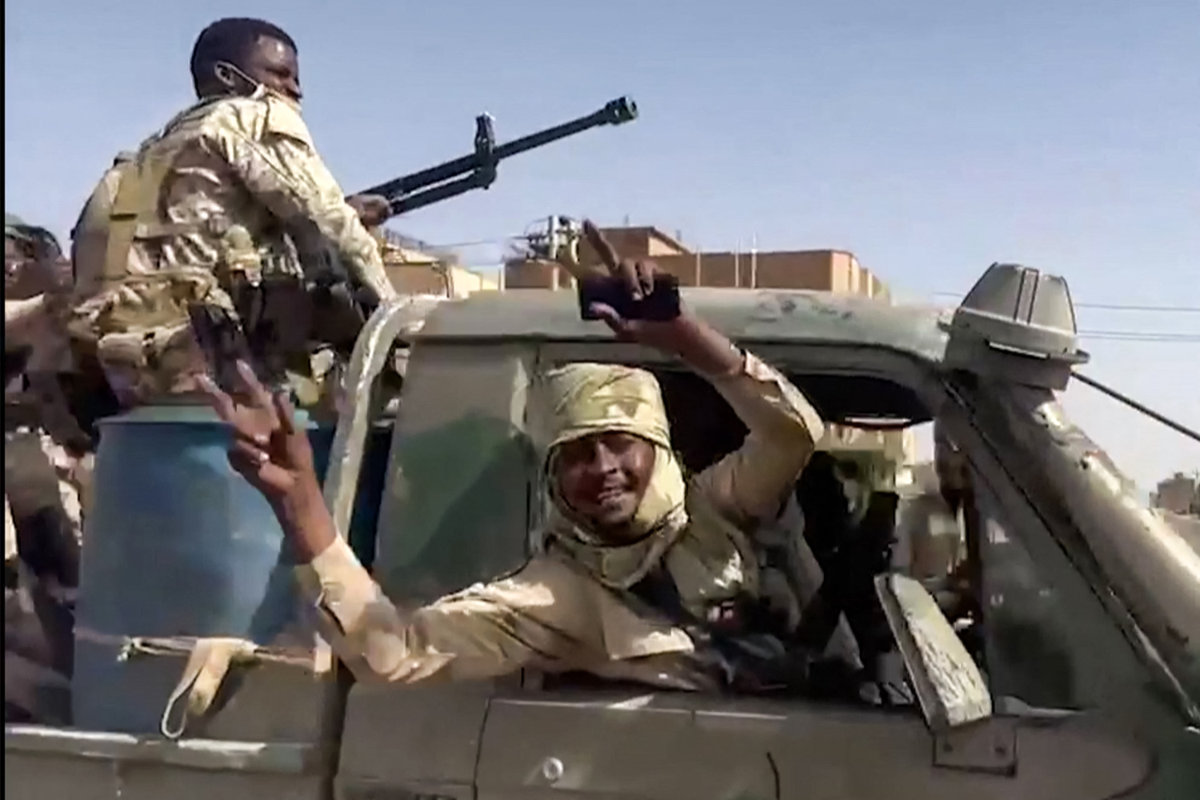
Sudanese paramilitary Rapid Support Forces (RSF) on patrol in the East Nile district of greater Khartoum on April 23, 2023, amid fighting in Sudan. (AFP)
With the United Nations reporting only 16 percent of health facilities in Khartoum operating as normal, the International Committee of the Red Cross (ICRC) delivered 8 tons of medical aid.
“Health-care workers in Sudan have been doing the impossible, caring for the wounded without water, electricity, and basic medical supplies,” said Patrick Youssef, the ICRC’s regional director for Africa.
But while approval had been given for the supplies to go to Khartoum, negotiations were ongoing with the sides to facilitate delivery within the city, where hospitals, convoys and ambulances have been attacked, he said.
At least five aid workers have been killed in the fighting.
A third of Sudan’s 46 million people needed humanitarian aid before the fighting began.
The conflict has derailed an internationally backed political transition aimed at establishing democratic government in Sudan, where former autocratic President Omar Hassan Al-Bashir was toppled in 2019 after three decades in power.
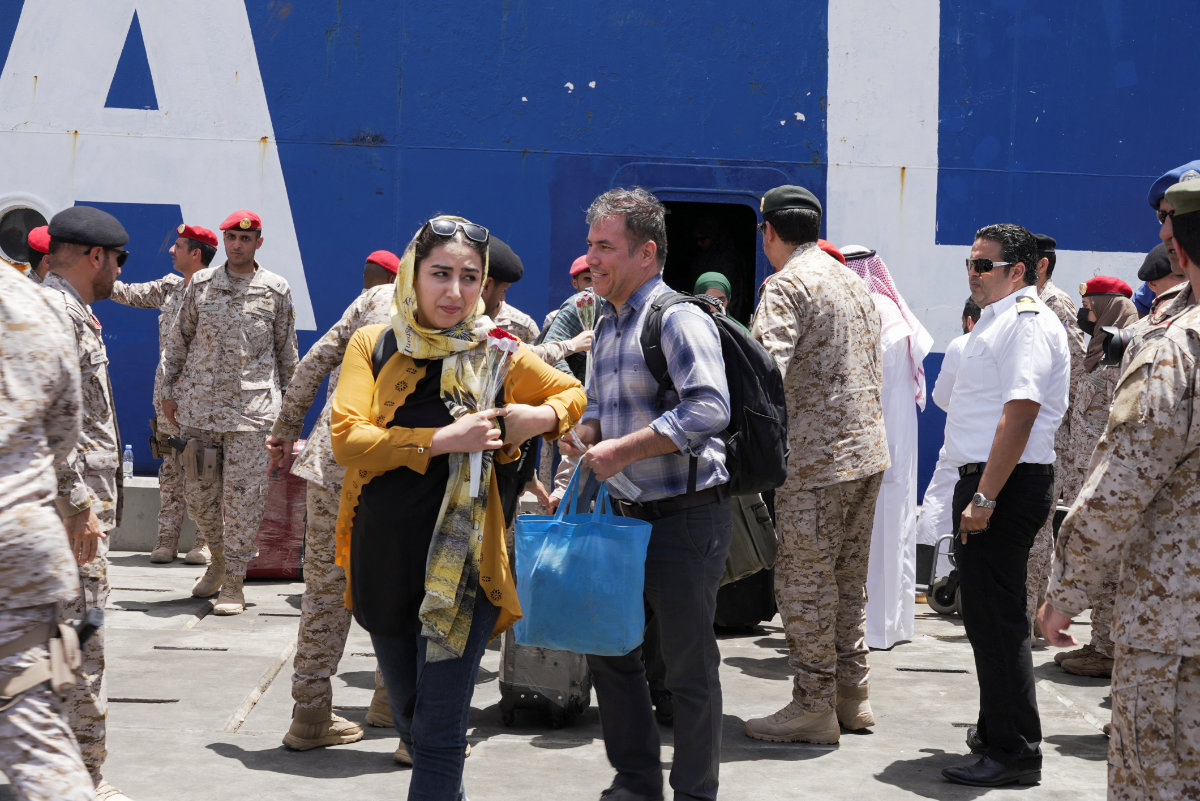
Iranians and other nationals arrive at Jeddah Sea Port on April 29, 2023, after being evacuated by Saudi Arabia from Sudan to escape the violence. (REUTERS)
“This war will not lead to a singular army or to a democratic transition, and there is no guarantee that the deposed regime will not return to power once more,” prominent civilian politician Khalid Omar Yousif said on Twitter.
At least 528 people have been killed and 4,599 wounded, the health ministry said. The United Nations has reported a similar number of dead but believes the real toll is much higher.


